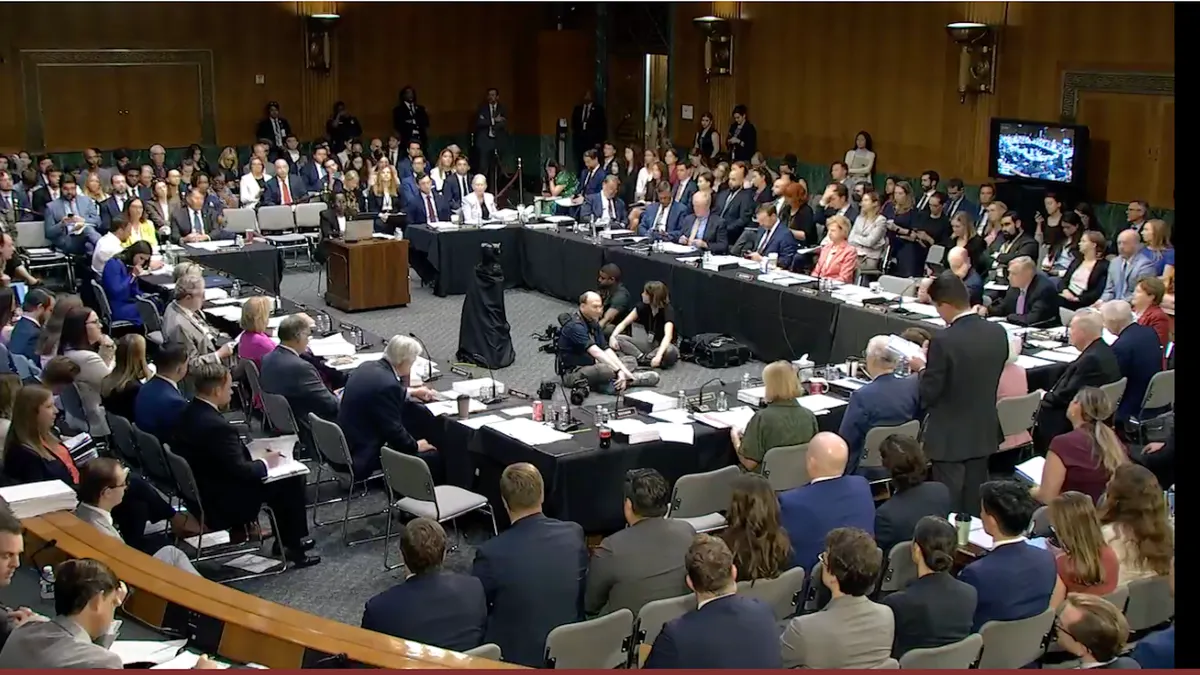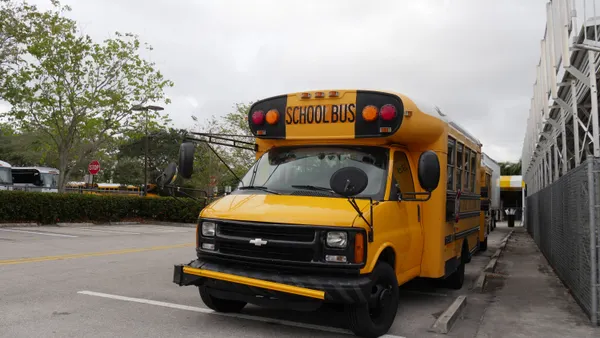The Senate Appropriations Committee on Thursday approved a bipartisan spending bill for fiscal year 2026 that would prevent the executive branch from removing Title I and special education programs to agencies outside the U.S. Department of Education. The legislation also rejects several other funding reforms proposed by the Trump administration.
The bill would require timely awarding of formula grants by the Education Department to states and districts. For several weeks in July, the Education Department and the White House's Office of Management and Budget withheld $6.2 billion in grant funding that states and districts expected access to starting July 1.
That funding at pre-approved FY 2025 spending levels was released after the Trump administration conducted a "programmatic review" and added "guardrails" to ensure the funds would not violate executive orders or administration policy, a senior administration official at OMB told K-12 Dive in an email July 25.
Educators, parents, education organizations, and Republican and Democratic lawmakers had pressured the administration to make the funds available, citing that the disruption in funds was causing school program cuts, canceled contracts and staff layoffs.
In total, the Senate Appropriations Committee recommends funding the Education Department in FY 26 at $79 billion, according to the bill text. That's $12.3 billion more than President Donald Trump's proposal of $66.7 billion. In the current fiscal year, the Education Department is funded at $78.7 billion.
"The bill also supports families by investing in education and affordable child care, which promotes financial stability for working parents and benefits our economy," said Appropriations Committee Chair Sen. Susan Collins, R-Maine.
The proposed education budget — which was included in funding legislation for the U.S. Departments of Labor, Health and Human Services, and related agencies — passed the committee in a 26-3 vote.
"Our bills reject devastating cuts — and reject many of this administration’s absurd proposals — like dismantling the Department of Education," said Sen. Patty Murray, D-Wash., vice chair of the Senate Appropriations Committee, in her opening remarks.
"We all know President Trump cannot dismantle the Department of Education or ship education programs to other agencies. Authorizing laws prevent that. Appropriations laws prevent that," Murray said.
Trump has said he wants to reduce the size and scope of the federal government and give states and localities more fiscal decision-making authority while reducing bureaucracy.
In March, Trump signed an executive order to shutter the Education Department to the "maximum extent appropriate." Congress, however, would need to approve the closing of the agency.
Maintaining separate formula grants
The Trump administration's budget proposed a new K-12 Simplified Funding Program that would merge 18 current competitive formula funding grant programs into one $2 billion formula grant program. The administration said the SFP would spur innovation and give states more spending flexibility and decision-making power.
The Senate Appropriation Committee instead rejected that plan by keeping the formula grants separate. The Senate plan would provide a $50 million increase over FY 2025 spending for both Title I-A funding for low-income schools and districts, and for special education services under the Individuals with Disabilities Education Act.
The bill would maintain current spending levels, except for a few reductions, across other K-12 formula and competitive grant programs targeting improvements in teaching and learning, according to a bill summary from Murray's office.
Other notable spending proposals from the Senate Appropriations Committee FY 26 bill include:
- The Office for Civil Rights would maintain level spending at $140 million.
- The Institute of Education Sciences would be funded at $793 million, level with the FY 25 budget.
- Title I and IDEA would be funded at $18.5 billion and $15.2 billion, respectively. The two grant programs make up the largest share of funding for K-12 at the Education Department.
- Under the HHS portion of the legislation, the committee recommends increasing funding for the early childhood learning programs Head Start and the Child Care and Community Block grant by $85 million each to $12.4 billion and $8.8 billion, respectively.
The Senate Appropriations bill will now be considered by the House and full Senate. FY 26 starts Oct. 1.
Correction: A previous version of this story misstated the scope of the FY 26 spending bill. We have updated our story.













